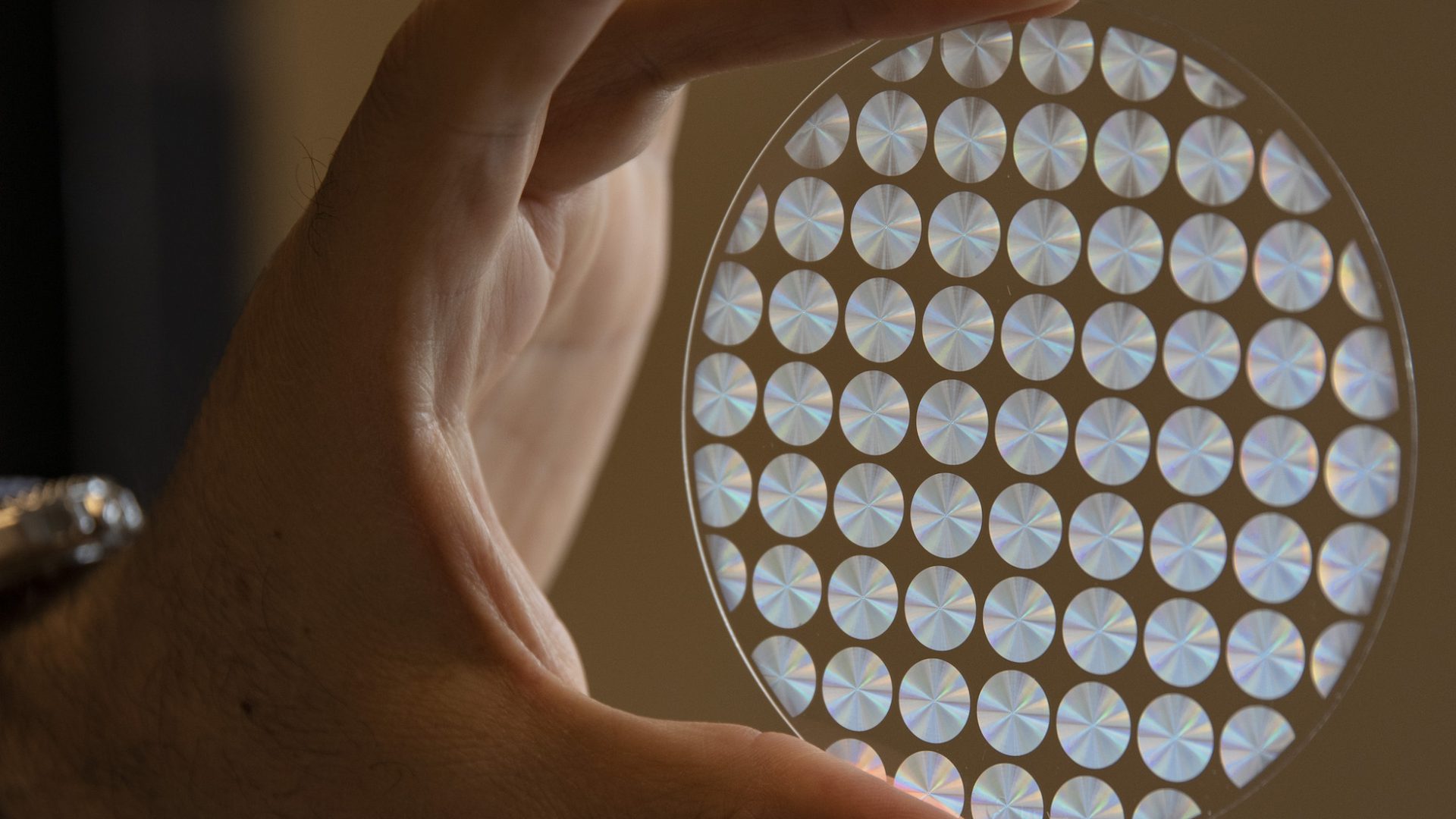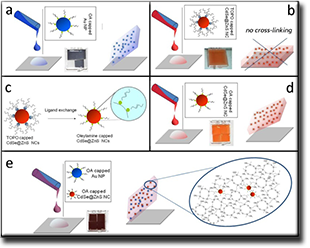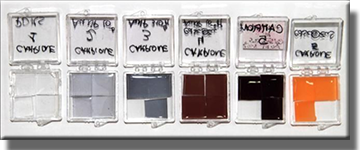This activity is devoted to the study of bulk nanocomposite materials, soft in nature, which exhibit non-conventional electromagnetic properties in the range of visible light, to be ultimately use as a loss compensation material.
Here the strategy has aimed at ad-hoc synthesizing nano particles as opto-plasmonic nanoresonators and organizing them into a soft bulk nanocomposite material, able to exploit cooperative interaction at a nano-scale level. The incorporation of inorganic NPs into a host matrix offers a versatile route for the fabrication of engineered nanocomposites with designed properties relevant also for technological applications. Among the different organic polymers, PDMS has been used as it represents a suitable candidate due to its chemical inertness, mechanical flexibility,
optical transparency in the visible and ultraviolet region, stability, high dielectric constant and breakdown field, and importantly, prompt processability also for integration in standard micro-fabrication processes.
Another important feature in the framework of this activity is the use of reconfigurable complex fluids, mainly chiral liquid crystals, as active host matrix to organize plasmonic nano-elements by exploiting their long range order and chiral symmetry. In addition they offer an unparalleled opportunity to switch between orientational configurations under the action of external stimuli (Electric and magnetic fields, thermal and mechanical stimuli), that allows to tune the collective plasmonic resonances as well as optical properties.




